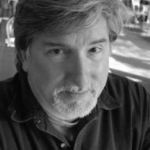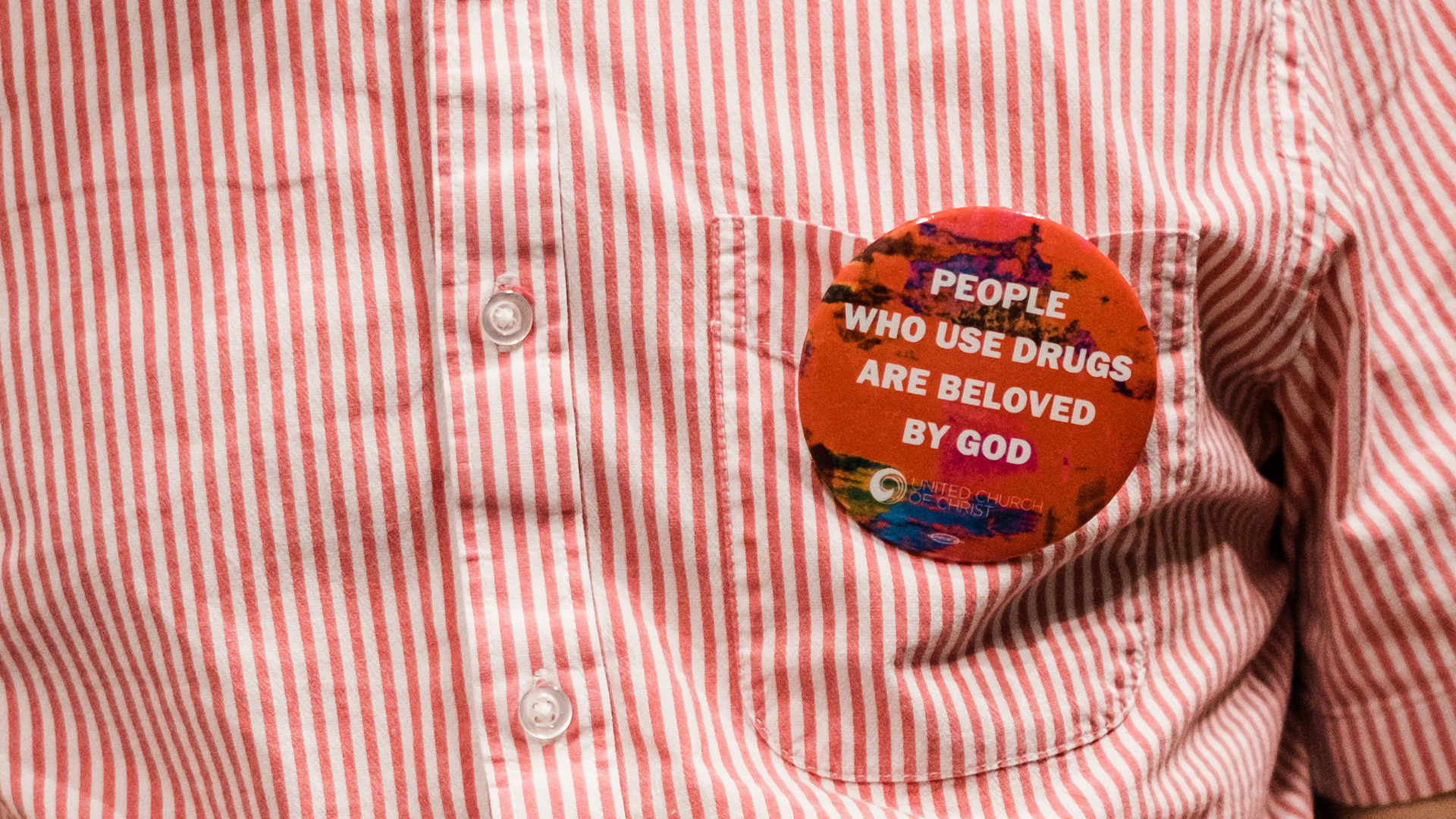
Pour My Breath Into You
In West Virginia, the state with the nation’s highest rate of death by overdose, faith communities answer urgent callings from any and all.
Some in the clergy consider it their primary mission to get fannies into pews. Others believe their higher calling is to propel butts into action.
Rev. James Patterson is among the latter.
Some years ago, Patterson, founder and CEO of the Charleston, West Virginia-based Partnership of African American Churches, was introduced to a theological philosophy that shaped the direction of his ministry. What engaged him was the notion of a prophetic — as opposed to a priestly — approach to ministry. The notion is, essentially, that the church is not so much a place one goes to, for affirmation, as it is a place one goes from, to practice what’s been preached.
Some years ago, Patterson, founder and CEO of the Charleston, West Virginia-based Partnership of African American Churches, was introduced to a theological philosophy that shaped the direction of his ministry. What engaged him was the notion of a prophetic — as opposed to a priestly — approach to ministry. The notion is, essentially, that the church is not so much a place one goes to, for affirmation, as it is a place one goes from, to practice what’s been preached.
“The prophetic voice has to be involved with the entire existence of the individual,” Patterson asserts, “as opposed to just trying to get folks to heaven.” In so many African American communities, he says, the Black church is an institution of power and influence. It must leverage its status for the earthly well-being of its community.
Such was the inspiration for the Partnership of African American Churches. Today, PAAC offers a range of essential health care services to residents of Charleston’s West Side — a once-thriving community — and all else in need.
Among the most pressing needs are services addressing the drug crisis. Patterson and his PAAC colleagues recognized that in a particularly hard-hit city in the state with the nation’s highest rate of fatal overdoses, countering this crisis was critical to the health and well-being of the community as a whole.
“If someone can find a way to function in life in a way that is healthier for them, and they’re living a better life, to me that’s the goal. Wholeness and healing are the goal."
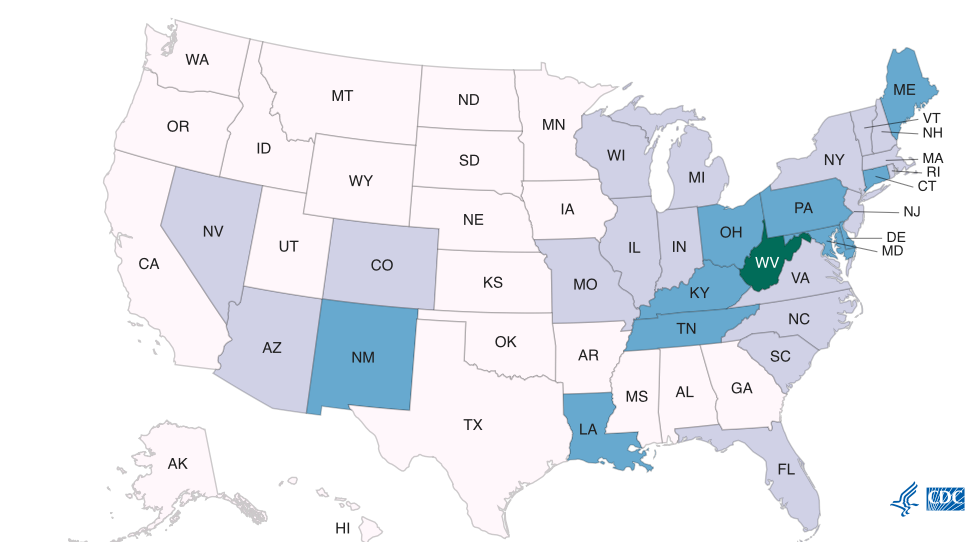
Among the services it provides is Suboxone treatment, a form of buprenorphine that reduces opioid withdrawal symptoms and cravings, offering a path to recovery.
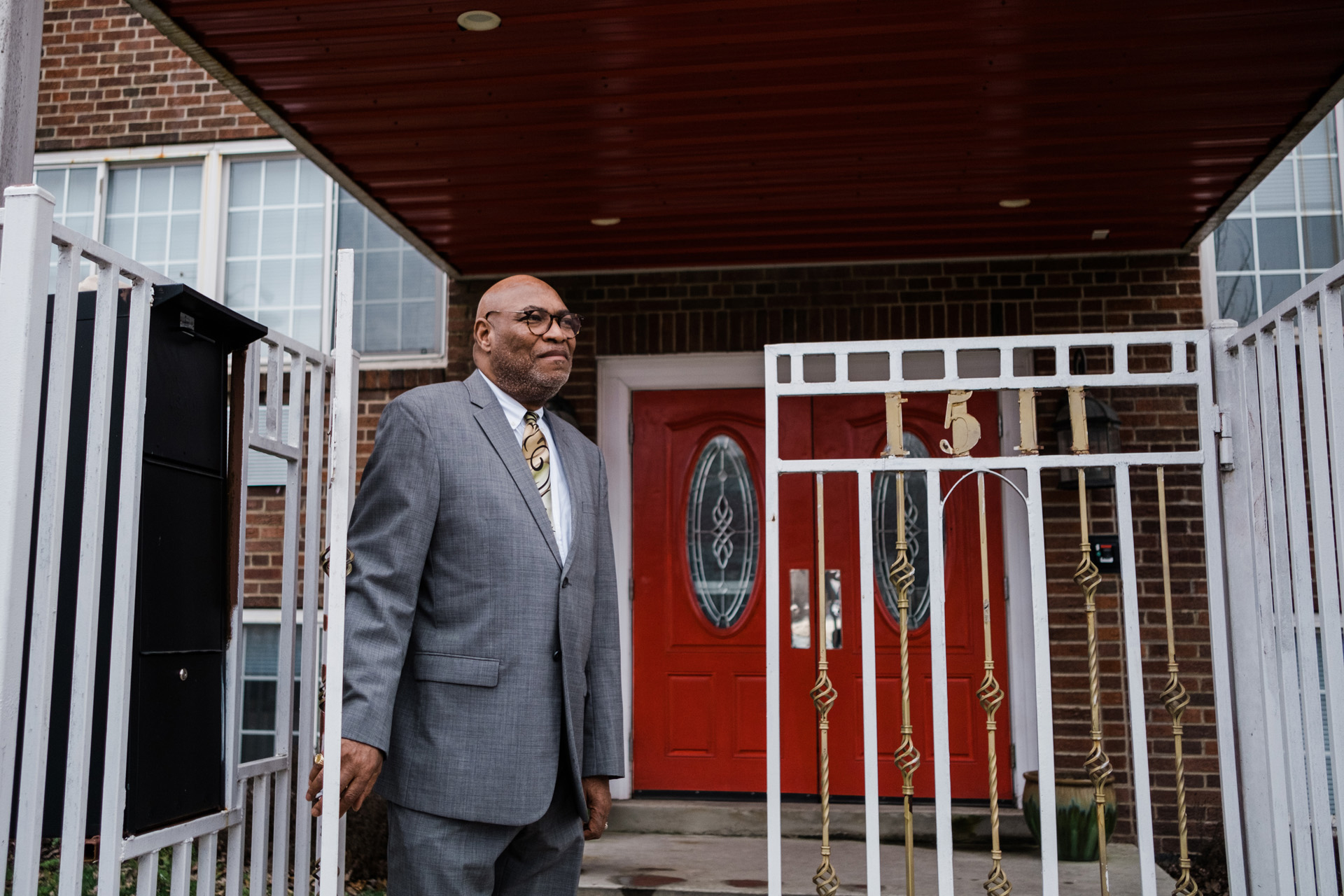
Twenty-five miles to the northwest of Charleston’s West Side, at Winfield United Methodist Church, Rev. Chris Scott likewise answers a calling to prophetic ministry: He too embraces a responsibility to address the crippling crisis of overdose.
Scott will tell you that there but for the grace of God…. He admits that in his youth he did some drugs and believes he was blessed, unlike some friends and family members, to have escaped addiction.
Thus his drive to launch the Ezekiel Project, an initiative to train faith communities throughout West Virginia in how to administer naloxone, a medicine that rapidly reverses an opioid overdose. Naloxone is available as a nasal spray or for injection. It’s available in pharmacies and through harm reduction programs — and, if Scott’s vision is fulfilled, faith communities far and wide.
“Our focus scripture is Ezekiel 37:5, which simply says, ‘I will pour my breath into you, and you will live,’ Scott explains. “And that’s exactly what naloxone does.”
The state of West Virginia provides naloxone training. But for Scott, these encounters are about much more. They offer entrée, an opportunity to open hearts, to encourage fellow believers to explore their capacity for compassion. He’s striving to eliminate the stigmatization of people who use drugs and to initiate conversations about the full range of harm reduction measures.
These faith-based organizations, PAAC and the Ezekiel Project, are answering urgent callings.
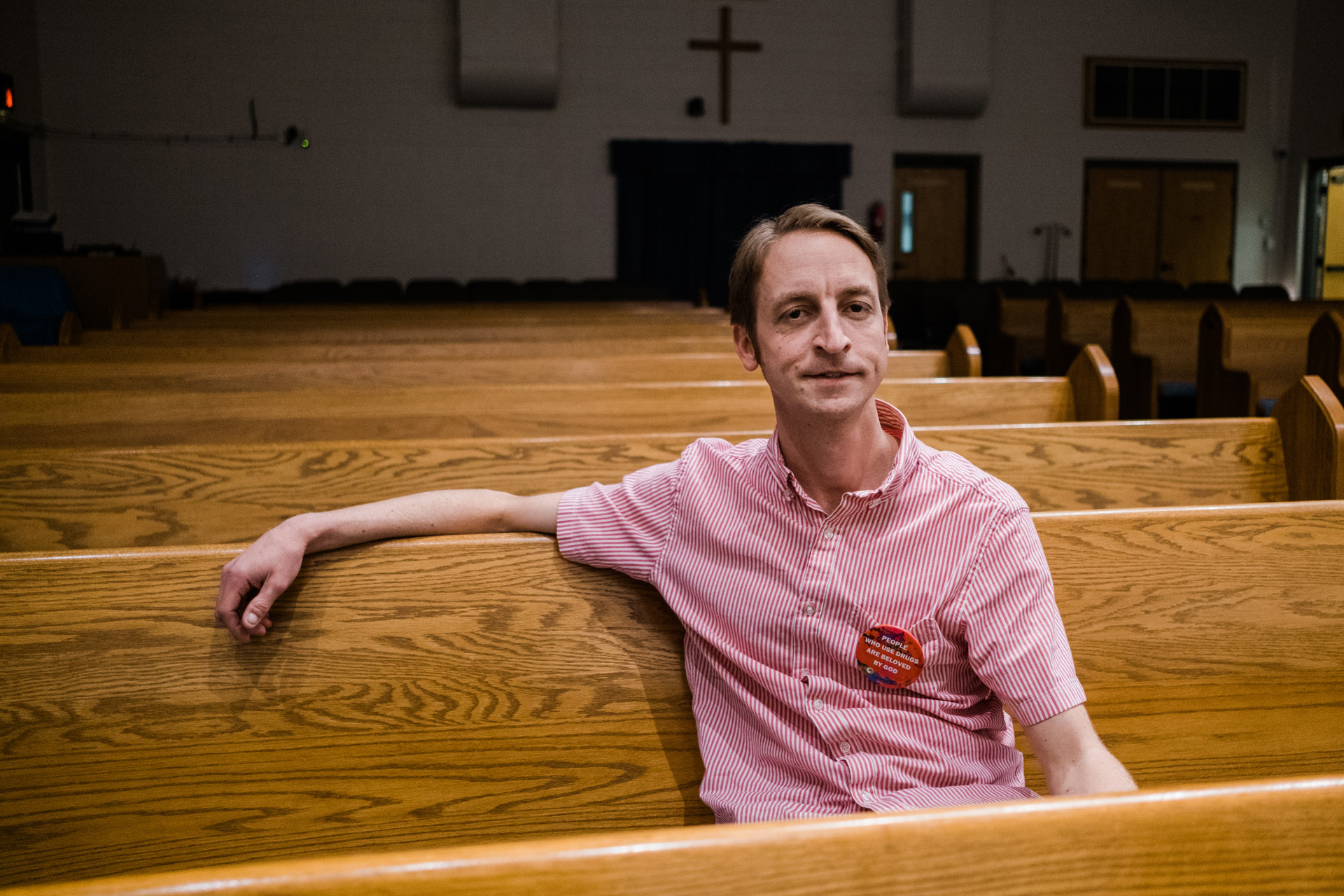
Culturally Sensitive Health Care
The impetus for the launch of PAAC twenty years ago was a study documenting low-birth weights for children of color, which led, says Dr. Wendy Lewis, PAAC’s clinical director, to initiatives addressing racial health disparities, which in turn led to a recognition of the need to close the achievement gap in West Side schools. Today PAAC operates three 21st Century Community Learning Centers for young people.
PAAC’s role in the community and beyond has incrementally expanded. Throughout the pandemic, it has assumed a leadership role in addressing vaccination hesitancy throughout West Virginia, sending community health workers into underserved areas.
The organization’s substance-use disorder services are available to all. In addition to Suboxone, it offers support in prevention and recovery, including recovery housing.
Patterson grew up in the town of Laurinburg, in the Piedmont region of North Carolina. As a child, his physician was a white man who treated Black patients — but only if time permitted after he saw his last white patient. Patterson recalls being administered a suppository and told he best hurry on home because the restroom down the hall was off limits.
Such experiences linger. Patterson’s mission is to provide culturally sensitive health care — sensitive to how a person may previously have been mistreated by the health care system “for no other reasons than because of their gender, because of their sexual orientation, because of their color.”
PAAC administers Suboxone in tandem with therapy. The program has an extensive client list, but Lewis says only eighteen percent are people of color. Given that Charleston’s West Side has the largest Black population in the city, that number seems low. Three years ago, though, it was but three percent.
Research shows that judges are significantly less likely to refer a person of color to buprenorphine treatment as an alternative to incarceration.
“We’ve spoken with the magistrate’s office, we’ve spoken with the drug courts system and judges,” Lewis says, “and we’ve told them that we’ve noticed that there's a disparity in referrals.” Those conversations now appear to be taking effect.
PAAC has enlisted community high school students in its prevention efforts, with a program in which they’re trained as mentors in a substance-use prevention program sponsored by the federal Substance Abuse and Mental Health Services Administration.

“Holy for All of Us”
The genesis of the Ezekiel Project came at health fairs hosted in Charleston by a community group called Solutions Oriented Addiction Response, or SOAR, at which a range of services, including naloxone distribution, was provided to people affected by drug use. Scott offered spiritual sustenance to those who attended.
The exchange of clean syringes for used ones was the primary attraction of the fairs, and when, in 2021, state and local government took measures that curtailed that exchange, the health fairs were discontinued.
“So we were wondering,” Scott says, “‘Okay, where do we fit in? What can our role be?’” Naloxone training for faith communities was the answer. He received a grant from the United Methodist Foundation, and the Ezekiel Project was launched.
“What I’ve found is support in a lot of unlikely places, even a lot of our more fundamental evangelical congregations.”
Scott describes Winfield United Methodist as “moderately conservative.” Among his congregants, the Ezekiel Project is largely seen as “sort of Pastor Chris’s thing,” he says. “They’re not against it. They’re just, like, ‘Oh, that’s what he does. He’s a weirdo.’”
That said, Scott believes the experience has been “holy for all of us, to be able to see and experience and put names and faces to stories, and sometimes misinformation, that they’ve heard.”
In communities where the overdose crisis is impossible to ignore, the reception has been overwhelmingly favorable.
On a late-January Sunday afternoon in the small southern West Virginia town of Sophia, Scott gives a half-hour talk to a dozen-plus folks on how to administer naloxone and then engages them in a discussion of the role they might play in countering stigmatizing narratives about addiction.
“I would say that the best thing that we can do as Christians,” he says, “is start changing the conversation around substance-use disorder” to acknowledge the humanity of those who use drugs.
Scott believes mainstream churches have, in general, done “phenomenal work” in reaching out to those who’ve made the journey to recovery or are on the verge of doing so.
“I think where the gap might be,” he says, “and where the most discomfort comes in for a lot of people, is when we get into harm reduction and ministering with people who are using drugs currently.
“I encourage and celebrate everyone in recovery,” Scott affirms. “I also don’t think it’s helpful to have such a strict dichotomy between people who use drugs and people in recovery. We have this separation, and I think it should be seen as a spectrum.
“If someone can find a way to function in life in a way that is healthier for them, and they’re living a better life, to me that’s the goal. Wholeness and healing are the goal,” he says. “If we can’t love people, then and there — that’s where I think the biggest transition needs to be. How do we minister to people exactly where they are?”
Claire Shanholtzer, now a pharmacy resident at the University of Pittsburgh Medical Center’s McKeesport hospital, grew up in the United Methodist Church denomination, has known Scott all her life and was on board the Ezekiel Project from the outset. She lost a dear friend, Mackenzie, to overdose at age twenty-six. She provides naloxone trainings in Mackenzie’s memory.
There have been times, Shanholtzer says, “when I was really kind of nervous about the audience. But “what I’ve found is support in a lot of unlikely places, even a lot of our more fundamental evangelical congregations.”
Scott agrees: “It’s been wonderful.”
Someone Close
“If the church does not recapture its prophetic zeal,” the Rev. Dr. Martin Luther King Jr. said, “it will become an irrelevant social club without moral or spiritual authority.”
It’s about “more than just getting folks to heaven,” James Patterson says. It’s about getting folks healthy, vaccinated, cared for, assisted on a path to optimal well-being. “We’re trying to help them live a successful and decent life here on Earth, on their way to heaven.
“Prophetic ministry is about the journey, and that’s what PAAC is trying to fulfill,” he says. PAAC, he says, embraces the “entire spirit, soul and body.”
Chris Scott aspires for every faith-based community in West Virginia to display its “We Carry Naloxone,” bordered with the Ezekiel scripture, signage.
“I guarantee you that someone in your church has a family member or friend” who is using drugs illicitly, he tells those gathered in Sophia. Displaying that message will indicate there’s at least one person within who’s not going to judge that loved one.
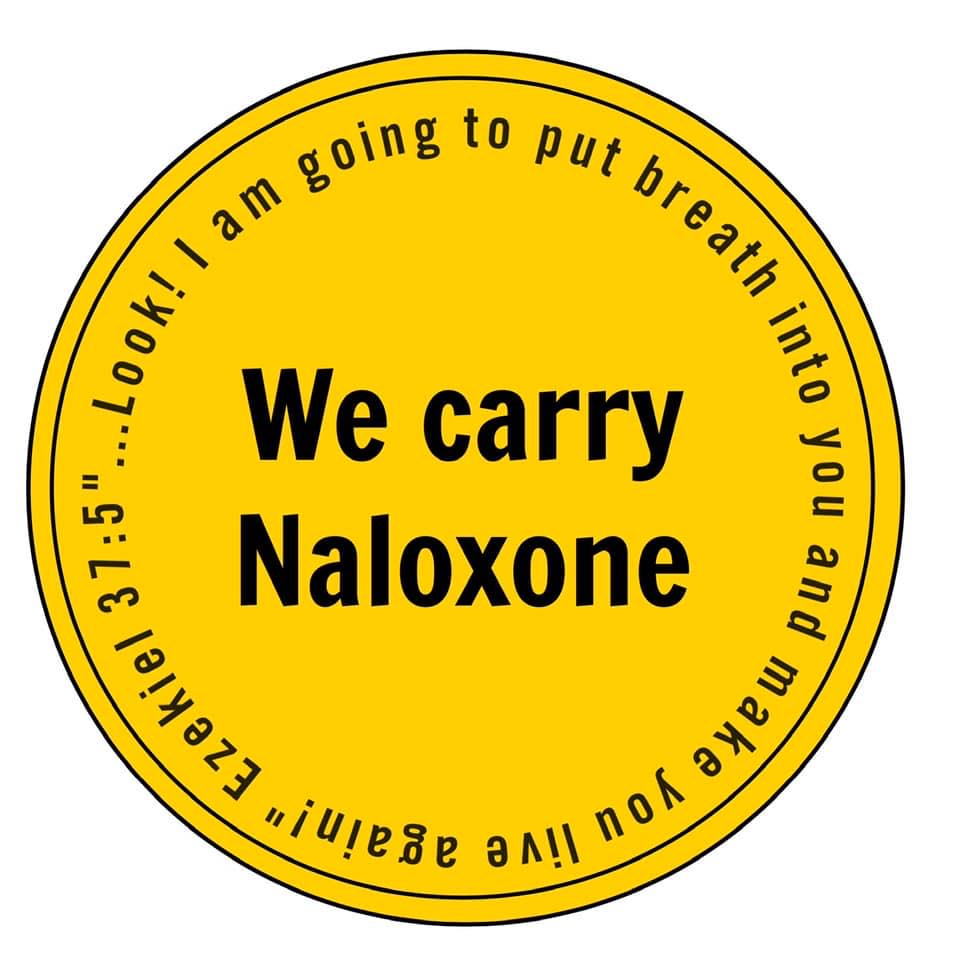
Scott hopes to build a network of harm reduction advocates rooted in faith communities and, in so doing, advance more humane policies and practices to address drug use.
“One step at a time,” he says. “We start with naloxone and see where we can take it from there.”

